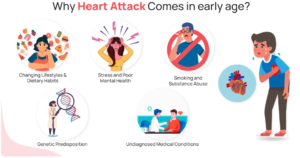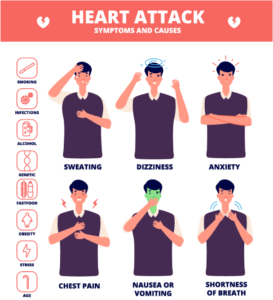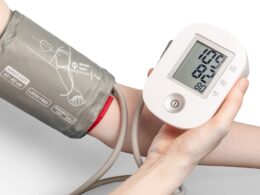“DEATH” is a concept which is quite ambiguous, yet fascinating for most of the world, it is still considered as a way through which one can leave all the pain behind. But what if it comes at you as an unavoidable threat at a very young age, at a time when productivity can be fostered through positive hard work, and the experience of love and warmth could be cherished.
As we consider 29th September globally to be the noble World Heart Day, we share our concern regarding the increased rate of cardiac diseases among individuals who didn’t even cross the age of 40, and even the worst part is, people in their early 20’s are now getting affected by this.

Through an aim to raise awareness about the cardiovascular health, the World Heart Federation, encourages individuals, communities, and governments to take actions to reduce the risk of “Coronary Artery Disease” among every age group, without overlooking “Arrhythmia” (an ocurrence of uneven beating of heart)as a mere condition, as 20.5 million and more people leave this world every year for complex Heart conditions.
Cardiac complexities along with Coronary Heart Disease (CHD) might lead to Myocardial infarction (MI), and that illness makes the patient suffer through mental imbalance if it occurs at young age, causing difficulty for the patient to carry the burden of expense of treatment.
What has led to the rise in cardiovascular disease among the youth?
As per the research done by experts, both the chronic and acute stressors are responsible for the increased rates of cardiovascular diseases among the young generation. Apart from them there are other factors that has led to the surge in heart diseases among youth.
Such as: sedentary lifestyle, excessive drinking and smoking, and continuing unhealthy food habits are the catalyst of extreme stress, and being overweight are big drawbacks for a person’s heart condition which makes the individual prone to hypertension, and diabetes.
Medical expert reports have confirmed, that heart attacks among young adults are on high rise which is an alarming situation on a global basis. Hence it is important to find a solution to retaliate this problem on as a global issue.

Here are four medical solutions and two generic solutions for countering these problems:
Medical Solutions:
1. Medications for Heart Rhythm Control (Antiarrhythmics):
Prescribed drugs by doctors such as beta-blockers (e.g., propranolol, metoprolol) or calcium channel blockers (e.g., verapamil, diltiazem) help regulate heart rate and prevent abnormal rhythms that can lead to cardiac arrest.
2. Implantable Cardioverter Defibrillator (ICD):
An ICD is a small device implanted in the chest, which monitors heart rhythms. If it detects dangerous arrhythmias, it delivers an electric shock to restore normal heart rhythm, thus preventing sudden cardiac arrest.
3. Cardiac Catheterization and Angioplasty:
Coronary angioplasty involves inserting a balloon to open blocked arteries, improving blood flow to the heart. This is often used in cases of early heart disease to prevent heart attacks in young adults.
4. Cardiac Rehabilitation Programs:
These medically supervised programs involve exercise training, heart-healthy lifestyle education, and counselling to prevent future heart-related issues. These are especially beneficial post-surgery or in cases of mild heart disease in young adults.

Generic Solutions:
1. Regular Exercise and Physical Activity:
Engaging in moderate-intensity aerobic activity for at least 150 minutes a week (e.g., brisk walking, swimming) helps strengthen the heart and improve cardiovascular health. Strength training exercises twice a week also contribute to overall heart fitness.
2. Stress Management and Mental Health Care:
Chronic stress is a significant contributor to heart issues in young adults. Practising mindfulness, meditation, and yoga, and ensuring proper mental health care through therapy or counselling can reduce stress levels, indirectly benefiting heart health.
Both medical interventions and lifestyle changes can play essential roles in managing and preventing heart problems in young adults resulting to build up a nation with lesser to no risk of life due to cardiac problems.
Thanks for reading! Keep exploring alloftop.com for the latest in tech, science, business, lifestyle, and beyond. Stay informed with us, and always be ahead of the curve!










